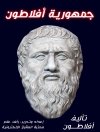While Plato’s and Aristotle’s theories of virtue have received extensive scholarly attention, less work has been done on Xenophon’s portraits of virtue and on his attitude towards the theoretical issues connected with it. And yet, Xenophon offers one of the best sources we have for thinking about virtue in ancient Greece, because he combines the analytical interests of a Socratic with a historian’s interest in real life.
Until recently, scholars of Xenophon tended to focus either on the historiographical writings or on the philosophical writings (chiefly Memorabilia, with some attention to the other Socratic writings and Hiero). Cyropaedia was treated as a separate entity, and Xenophon’s short and more technical treatises were generally studied only by those with particular interest in their specialized topics (such as horsemanship, hunting, and Athenian finances). But recent work by Vincent Azoulay and by Vivienne Gray have shown the essential unity of his writings. This volume continues this pan-Xenophontic trend by studying the virtues across Xenophon’s oeuvre and connecting them with a wide range of Greek literature, from Homer and the tragedians to Herodotus and Thucydides, the orators, Plato, and Aristotle.
Tentang Penulis
G. Danzig, Bar Ilan Univ., Ramat Gan, Israel; D. M. Johnson, Southern Illinois Univ., Carbondale, USA; D. Konstan, New York Univ., USA.












